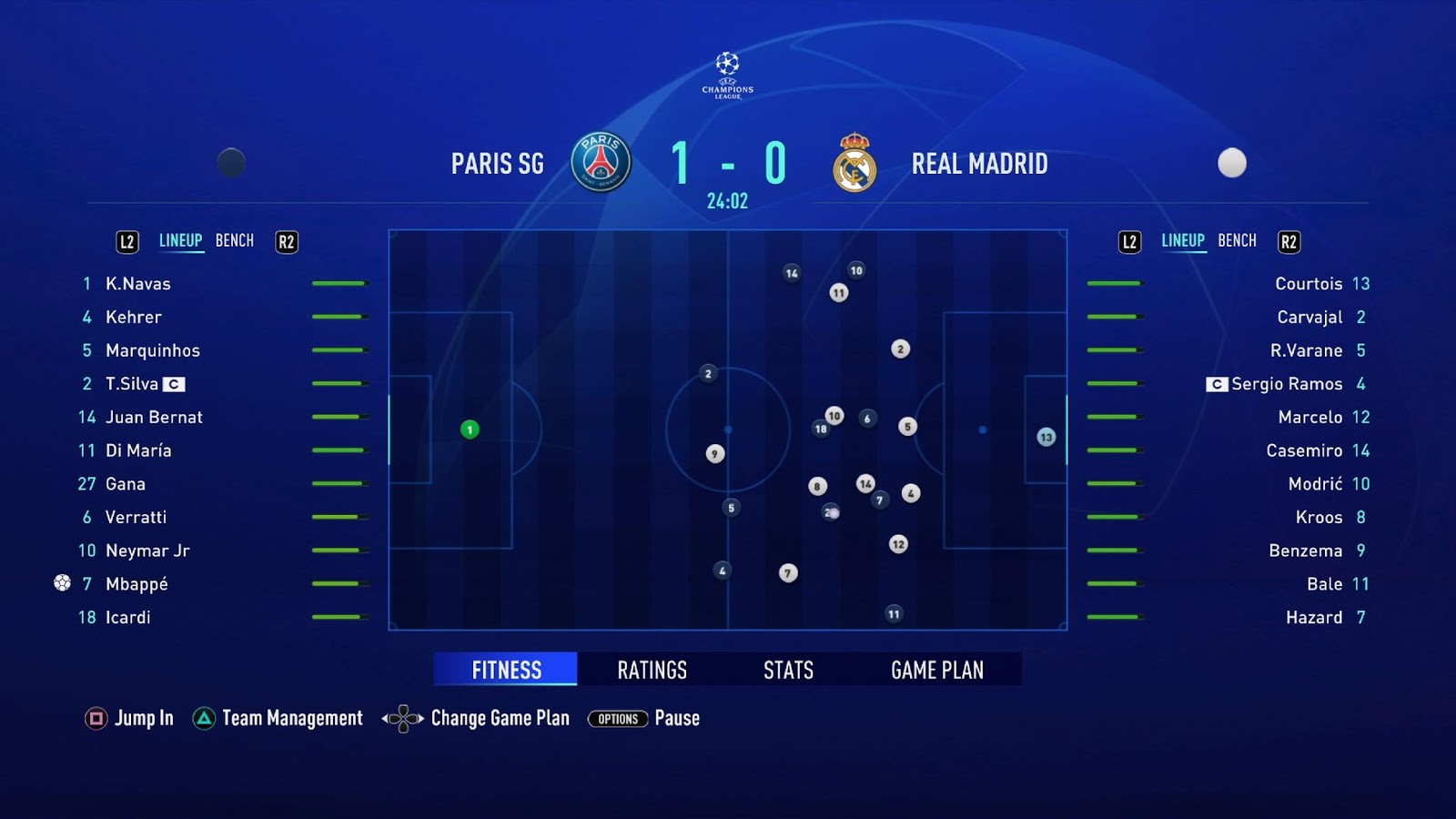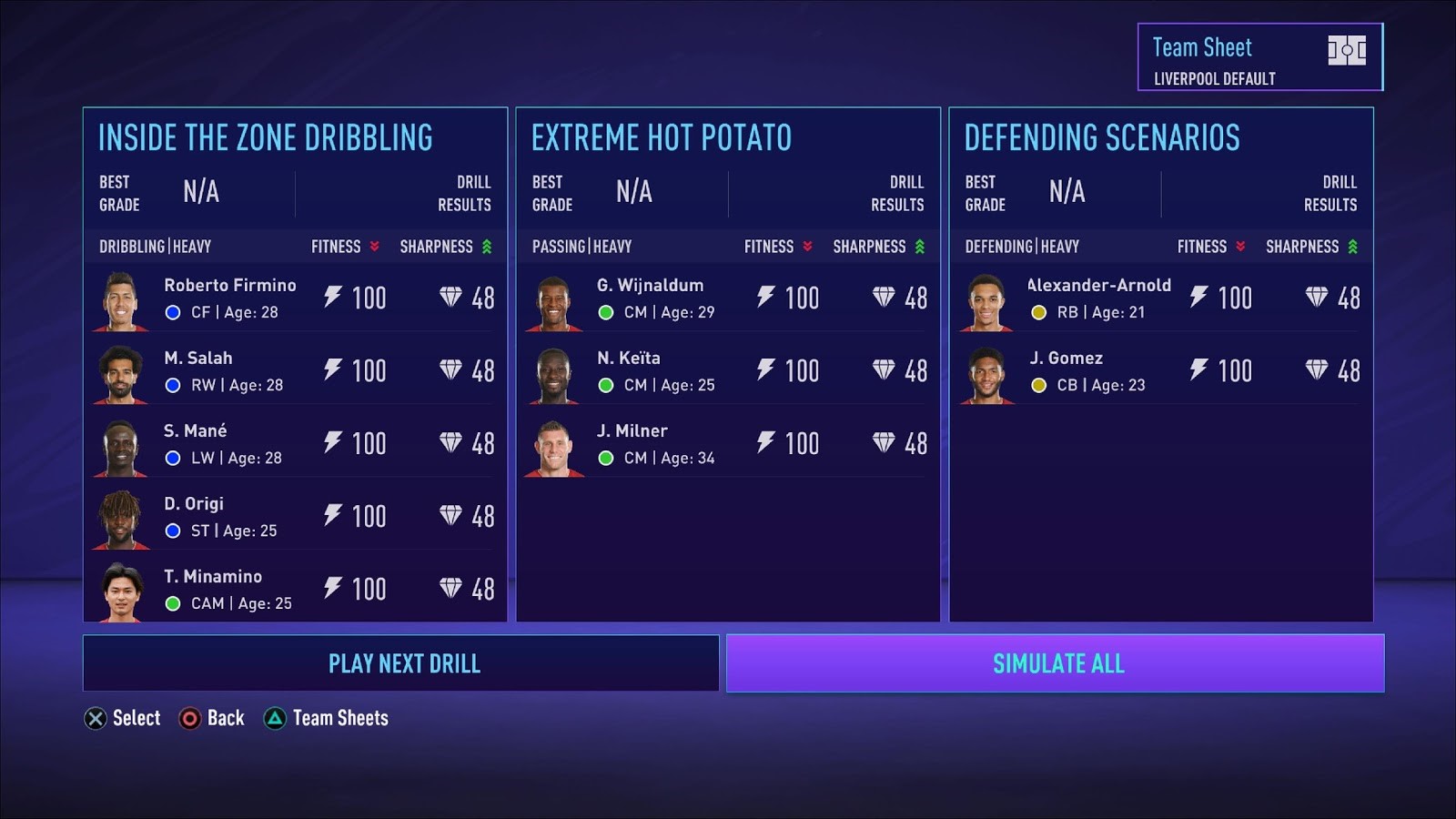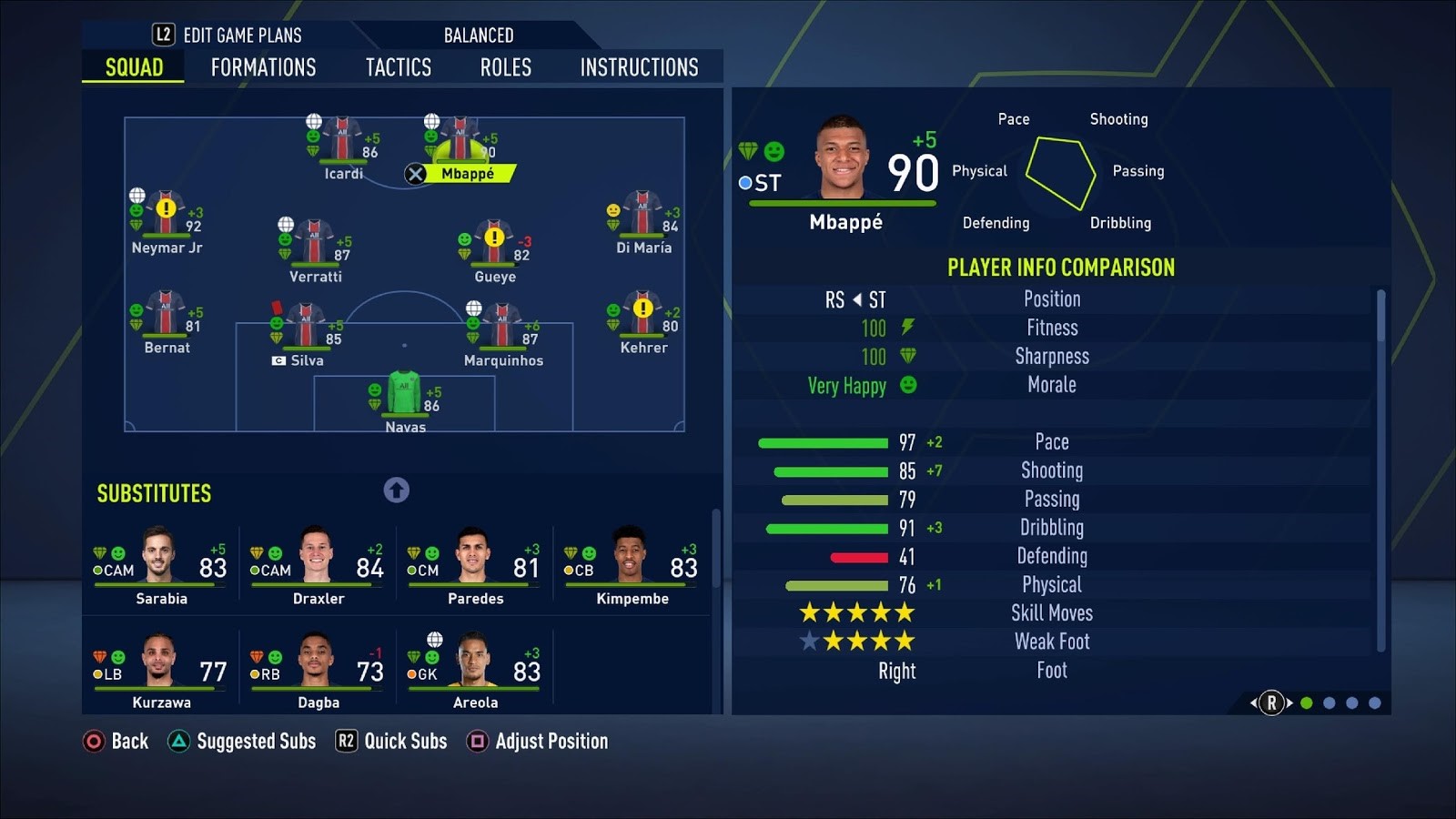Revamped player training, customizations, and sim options detailed in our close look at EA Sports’ upcoming PS4 sports title.
Hello PlayStation fans! A few weeks ago we had the opportunity to take a closer look at FIFA 21 and what Career Mode has in store for you this year. Running us through the big improvements in that — as well as Volta mode, which also makes a return — is Alex Constantinescu, Senior Game Designer. Read on to find out what we learned from our interview with Alex.
1. Interactive Match Simulation

One of the first things you’ll notice is the new launch screen pre-match. Here you’ll find plenty of useful information to help you make the best strategic decisions for your squad in the match ahead. Once you’ve weighed up and made your choice, it is time to get into the game.
And simulations are more comprehensive than ever to give you more agency and control. Players’ stamina, stats, match ratings and game plan options are at your fingertips, letting you keep to the sidelines and make on the fly tactical changes. Alternatively at any point during a game, as many times as you want, you can jump in and take direct control of the on-pitch action. The game will even suggest opt-ins at key moments, such as when a goal is scored.
The studio has worked hard to make the transition from sim to actual match super-fast. Coupled with the game suggesting the probable lineup of your opponent’s team before the sim begins, you’ve an incredible array of tools at your disposal to plan your team makeup and formation and counter any on-pitch tactics. And If you so wish, you can simply skip the watch (or play) and get the full-time score and stats.
2. Player Development
Last year, Dynamic Player Potentials was added to Career mode, helping you track the growth and evolution of the player. Building on that success, this year the studio is giving you an even more layered and flexible approach to player development.
In FIFA 21’s Career mode, you will be able to plan the way your player develops skills and decide in which areas a player’s growth should happen.
Example: choose a young, inexperienced player and push them into developing their dribbling or finishing skills. Or, take a veteran player and decide which of their already developed abilities should be kept at their peak level in order to maintain a spot on the team.
However, it isn’t as simple as choosing which abilities need to grow. They are balanced against other parameters, such as a footballer’s play time, their match ratings and the difficulty level of your opponent. All factor into your players’ development and how quickly they can reach their maximum potential.
Answering one of FIFA fans’ most requested updates, this year you’ll have the ability to change a player’s field position. There’s a caveat though: depending on specific player development, some position changes can be more difficult to make than others. Turning a centre-back into a striker is not an easy feat, but there if you really want to take on the challenge.
3. Active Training System & Match Sharpness

Another new feature is the Active Training System. This adds an extra layer of depth to your performance management. In the same way that Player Potential focuses on long term development, Active Training is all about the immediate match readiness of your players, giving you a lot of control over your team’s pre-match preparation.
Sharpness will be the new indicator of player abilities. The bigger the Sharpness value, the better the player will perform in the upcoming match. Paired with player Morale, these will affect performance.
One way to increase a player’s Sharpness is training sessions. However, be mindful that extra training will tire out your chosen footballer and lower their Fitness level. It’s up to you to strike a balance between Sharpness and Fitness, both essential attributes required to secure a victory.
Training offers different drill scenarios. Conditions like difficulty level, intensity and number of players will vary depending on what you pick to practice. While players will be pre-populated based on who is in your starring line-up and who is on the bench, you can customize the line-up if you so wish.
In order to get the maximum benefit for your team, you must master all training drills at least once.
4. Player Feedback System

The studio has strived to create realistic outcomes based on your team management choices.
Your approach to each player’s Sharpness, Fitness and Morale impacts and adjusts their attributes accordingly. Change a player’s position to that other than his preferred one and expect to see his Morale and Sharpness take a hit. You won’t be left in the dark though: these stats will always be accessible, letting you know your individual players’ feelings about the choices you’re making. So, play wisely.
5. Schedule Planning
Aside from player development, you will also be able to customize your team’s schedule. You will have to decide when it’s the best time to train or rest your players.
There are two approaches you can take: you can set global parameters that apply to the whole season calendar or you can fine tune on a weekly basis, dropping training or recovery days as needed. It makes for an incredibly detailed and personalized schedule tailored to your team’s specific needs.
Those are just some of the improvements that FIFA 21 is ushering in. Additional changes to Career Mode include an improved onboarding experience for first time players, more realistic transfer and setup options as well as an enhanced opposition AI. We’ll get to see how it all comes together on October 9, when FIFA 21 launches on PS4.












Comments are closed.
3 Comments
Loading More Comments